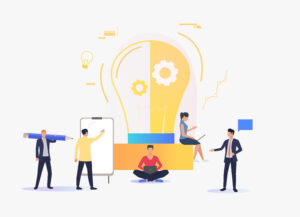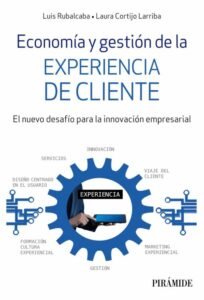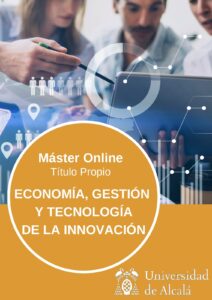By Luis Rubalcaba, Professor at the University of Alcalá
This is the first entry to my personal blog that I have called “Innovation, company and society”. In my blog I intend to inform and comment on innovation issues and what affects people in their work and, therefore, society. Innovation today is no longer a luxury that a few lucky people who lived on the frontier of knowledge and technology could have access to, but rather a necessity for all those who want to get on the winning horse of socioeconomic change and dynamism. Steve Jobs said that innovation makes the difference between being a leader and being a follower. But even to be a follower you have to have certain skills to grasp, absorb and adapt existing technology and knowledge. Without some ability to deal with innovation, it is not even possible to be a good follower of those who lead the advances. That is why many speak of “innovate or die”.
The current world is not a time of change, but rather a change of time, as has been pointed out from different perspectives of history, anthropology and philosophy. From a strictly economic point of view, there are many who say that we are witnessing a new post-industrial revolution, an information revolution where the world map has been transformed by the Internet, globalization and advances in information processing. All this has coincided in an unparalleled development since the year 2000, and with particular strength in recent years. There are so many changes and challenges that we are all tempted to attend as spectators in the face of so many phenomena that pass us by: artificial intelligence and machine learning technologies, the block chain and big data, industry 4.0 and servitization , increasingly omnipresent terms present in economic activity. It seems like it was a cyclone where the best thing is to hold on to what we already know or wait for someone to help us cross or for us to be able to place ourselves in a comfort zone sheltered from so many changes.
But there is an alternative: to be protagonists of this historical moment, look it in the face, get to know it well and use it for personal and professional development, both for ourselves and for the world around us. This is the challenge of innovation: that our work be creative, dynamic, capable of leading and responding to social needs. Innovation is, neither more nor less, a way to experience work in a new way. Let us not think that all innovations generate the same effect or that all innovations are good. Innovations are good and generate the maximum effect if the work of people uses knowledge and technology to develop the worker himself and the world in which he operates. Innovation can allow the worker to link with the whole world in the adventure of growing, producing, contributing to well-being. You sign up?








